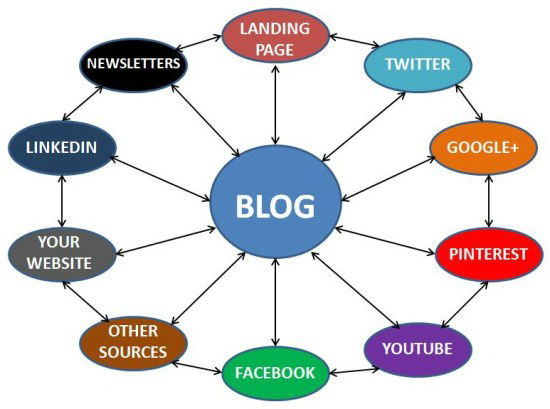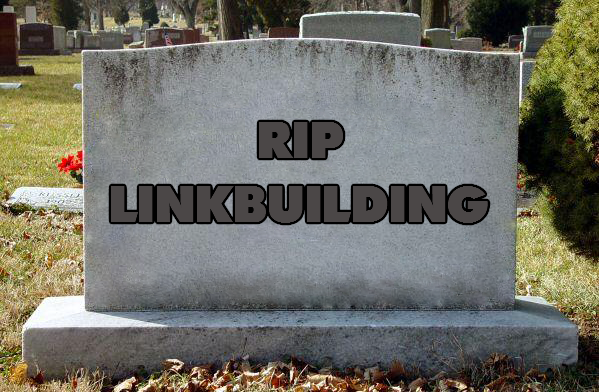Best Business Models [Revised for 2024] | Most Profitable
The internet has changed a lot over the past 10 years. While some methods of internet marketing have changed since the good ole days, the broader principles and strategies remain solvent and effective. Most of the best business models from the early 2000’s are still around.
Today, I want to cover five of the most popular and best business models that are actually profitable. I have tried all of these business models in the past. Let me present what I learned, what I recommend, and why it may/may not be right for you.
All of these are still profitable in 2022.
Best Business Models
These best business models are in particular order and all of them have proven to be effective when done right. The problem is finding a reliable blueprint and executing that blueprint to a T. With that in mind, let’s dive into the business models!
#1: Email Marketing
There are some Marketers that spend all their time selling affiliate products to their email lists. They generally use paid ads to target a specific audience, then put those “leads” through a progressive sales funnel to accomplish two objectives:
to their email lists. They generally use paid ads to target a specific audience, then put those “leads” through a progressive sales funnel to accomplish two objectives:
- Build their list
- Recoup their advertising fees
The owners of Human Eyeballs do nothing but use solo ads to build their email lists. They sell solo ads to their own list in their “Human Eyeballs” service. They are VERY effective at email marketing (I took a coaching course with them back in 2015) and have it down to a formula.
My full 7 Minute Commission review reveals a stupid way to profit with dumb emails sent to strangers.
Why choose email marketing?
There are quite a few methods you can use to build your list and plenty of courses out there to teach you how to do it effectively.
Pros:
- Gives you the ability to earn a passive income
- Provides you with a real asset
- Makes you an instant contender in affiliate contests and product launches
Cons:
- The cost of autoresponders can get pretty high if you build a huge list
- The use of tools can get pretty technical and overwhelming for beginners
- List building may seem straightforward, but takes a lot of experience and experimenting if you don’t have a mentor or blueprint to follow.
If you collect your leads from quality sources, you could have a responsive list that actually listen to you and buy your recommendations. Just understand it could take a substantial amount of capital upfront before you begin to see a profit.
Verdict: All marketers should build a list. You don’t have to invest in a plethora of technical tools, but if you want to be successful with email marketing as your primary business model, it’s gonna take a lot of work, patience, guidance, and some capital.
#2: Network Marketing
This type of business model is very broad and success is not at all  guaranteed. A lot of people still seem to love this business model and it will always be listed as one of the best business models for newbies.
guaranteed. A lot of people still seem to love this business model and it will always be listed as one of the best business models for newbies.
Can anyone do network marketing?
The answer is yes and no.
I’m not gonna sugarcoat this in any way, shape, or form. To be successful with network marketing, you need three factors in your favor.
- You have to have a company or structure you truly believe in.
- You have to have a clearly defined WHY. It also doesn’t hurt to connect that why with your life’s purpose.
- You have to have a platform to reach out to others who are looking for the solution you’re offering.
The chance of success with MLM is not in your favor. In fact, 95% of all network marketers will fail.
If you are thinking of joining a network marketing company, then you need to ask yourself why. That person that introduced you is probably either edifying his/her sponsor’s success, or trying to make him/herself look extremely successful.
Let’s look at the good and bad of network marketing
Pros:
- The cost of starting your own business is usually a lot lower than the other business models
- Lead generation strategies are usually free or cost very little
- If you love people and talking to people, then some facet of network marketing may be for you
- The culture is generally very positive and filled with people who are fun and pleasant to be around
Cons:
- You are building someone else’s business if you don’t build your own brand while you’re in the company
- It takes constant work as retention rates are shockingly low, depending on your effectiveness as a leader and ability to duplicate results in your downline
- Outside of the network marketing industry, most people will view you as a scam artist or up to no good
- The odds are not in your favor
It’s not as easy as it looks. Even if you are able to refer someone or groups of people, 50% of referrals drop out before the end of 1 year… 90% will drop out within 5 years. Imagine running on a treadmill, but instead of losing fat, you’re losing money. Not too much fun in the grand scheme of things.
Verdict: I speak from experience. I always struggled with network marketing. Yes, I referred people in the beginning with multiple companies, but never made much of a profit. This is my least favorite for good reason – and you aren’t building your business most of the time, you are building someone else’s.
#3: eCommerce
There is no denying that eCommerce has blossomed as one of the most  popular business models for the tech-savvy in recent years. From Shopify to Amazon e-Stores, everyone and their grandma have been getting on the eCommerce trend.
popular business models for the tech-savvy in recent years. From Shopify to Amazon e-Stores, everyone and their grandma have been getting on the eCommerce trend.
Running an eComm store has a lot of potential, but there are a lot of factors working against you.
You are building a store that happens to be online. It’s not necessarily easy to find the products that sell and present them in a way that strikes curiosity. If you decide you want to go the eCommerce route, it is a good idea to invest in a high-quality course or membership.
Mage Omega X provides a great done-for-you template and blueprint for selling products through an eCommerce store. You can also look up “Adrian Morrison ecomm suite” to learn how to dominate eCom with Shopify.
ECommerce is effective when systems are utilized to take the guesswork out of the equation. The eFormula Course is a complete training program that will teach you how to build an eCommerce empire with automated systems and less effort.
Why you should/shouldn’t try eCommerce
Like with the previous business models mentioned, let’s look at the pros and cons of eCommerce.
Pros:
- There is a lot of potential and scalability with eCommerce
- Some platforms provide tools that can increase your chance of success
- There are plenty of courses available that can put you on the right path
Cons:
- There is a vast learning curve and profits are not guaranteed
- Your competitors are usually a step or two ahead of you when you are a beginner and can cut into your margin
- The cost of getting the help you need to cut your learning curve may not be affordable for some people
I am not against eCommerce, but the notion that “if you build it, they will come” seems to lure a lot of people into believing eCommerce is a sure thing. Like most other business models, it requires a lot of capital to ensure a higher rate of success – and even that, it is never guaranteed.
Verdict: If you find the right mentor/system, eCommerce can be wildly successful, but so can buying a lottery ticket. Like with paid ads, it can take a lot of losers before you find a product or store that sells. It’s a numbers game. If you have that mentality, you will go a lot further.
#4: Niche Site/SEO

Back in 2010, a lot of people did this business model. Back then building niche sites was definitely one of the best business models… until Google made their changes in the form of furry creature updates.
Chicken Little had a lot to say back then and Google was seen as an evil dictator, executing the livelihood of countless marketers.
Fast forward to today. Believe it or not, people still do niche site marketing and SEO for a living. Google does not want to discourage building sites that sell stuff, they just want whatever site you build to provide value to the online world.
What changed over the past 9 years?
Ranking websites used to rely mostly on pagerank. It was easy to manipulate pagerank and blackhat marketers knew how to build sites that ranked at the top of page 1 for important keywords.
The Google updates made it impossible to simply rank a website based on any one specific factor. It is rumored that there are, in fact, more than 200 possible ranking factors.
This means that you can’t as easily manipulate the SERP’s as you could before. In order to find success with niche sites, it helps to have the following:
- A niche that contains a plethora of profitable products and monetization opportunities
- The ability to write a ton of content (or outsource the writing)
- A site with authority and a proper outreach protocol
- Consistency and patience
My favorite course on niche site building is called RankXL by Chris Lee. You will learn the exact process of how to build profitable authority sites from start to finish.
Why you should/shouldn’t build niche sites
Pros:
- It’s great if you love writing
- Very cheap to start
- WordPress makes it easy to build a site with little to no technical experience
- Provides a source of passive income that can be scaled
Cons:
- If the site is not setup correctly, Google will not rank anything
- There are no easy shortcuts and is a long-term strategy
- Requires a lot of writing and monitoring
- Can be boring as hell
Verdict: Building niche sites is a great way for writers to harness their craft, while building a profitable business. It’s also a profitable way to find your passion and become an expert in a given field. Once you have built it up enough, you can choose to continue building your site, or sell it for a huge payday.
Clickbank is a great way to monetize your niche sites. If Clickbank is you preferred path, click here to check out my review on Clickbank Breaks the Internet.
#5: Digital Marketing Agency

That brings us to our final business model of the day: the digital marketing agency.
The aim of this business model is to achieve success by helping other business owners find success of their own. I call it the “Ziglar method” of business success. You really can get what you want when you help enough others get what they want.
Most business owners have no online experience and will pay quite a bit for services like web design, SEO, PPC management, and other digital services. If you have a good track record and proof you have helped other businesses, there is no limit to how successful you can be.
How is the agency model different from the others?
Setting up a digital marketing agency is different from the other business models, since it combines concepts of both offline and online marketing. You are basically doing internet marketing tasks for offline businesses.
There are plenty of challenges to starting an agency. Parallel Profits is a brand new course that provides all the training you need to build your own digital marketing agency. Additionally, you are offered a franchise opportunity to partner with the creators of the course so the majority of the obstacles you face are taken out of your way.
You can see my full Parallel Profits review here.
If you start your own digital marketing agency, you will have several challenges to overcome.
- You will have to be registered as a real business (LLC, corportation, etc)
- Getting clients is not as easy as you’d think, especially getting the first client
- If you are able to set up the business, you will have to either be an expert in digital marketing, or have access to someone who is
- Meeting and nurturing new clients can be cumbersome and overwhelming, especially for someone that has little to no sales experience
- If your business is a success and really takes off, you will have a lot of work to do in fulfilling your client orders
- As in other brick and mortar businesses, your time freedom takes a massive hit and can be close to non-existent
Running your own agency gives you the flexibility to work when you want, but if you don’t have a system in place and/or lack organizational skills, it could become a nightmare.
That is why I am such a huge advocate of the Parallel Profits model. The website, branding, and client fulfillment are all done for you. All you need to do is find the clients using their strategies that are proven to work. Check out my Parallel Profits FAQ to get all your questions answered.
Why you should/shouldn’t start your own agency
Pros:
- Can be scaled for profitability quickly
- If you are analytical and like dealing with people, owning an agency is a great way to harness your strengths
- It’s a great way to get what you want through helping others get what they need
Cons:
- Getting clients is never guaranteed, which make it a very expensive “what-if”
- There can be many expenses, similar to that of starting your own brick and mortar business
- Very time-consuming work can take away your time freedom
Verdict: The digital marketing agency model has huge potential if you have a brand, are good at sales, and have the expertise to fulfill digital marketing orders. Having a partnership in place or splitting up tasks with others can help make this model extremely scalable and profitable.
Business Models for 2022 Conclusion
Taking a look back at all the best business models discussed in this article, there are plenty of pros and cons for each model. What works well for one individual may be a nightmare scenario for someone else.
Before you dive in you with one of these business models, it’s very important to ask yourself what kind of business you want to run. Here are some questions to ask yourself before starting one of these today.
- Do you want a more passive income model?
- Would you want to deal with people directly?
- Do you value time freedom over a certain level of income?
- Would you be happier helping businesses get more business or just making sales by yourself?
- Do you want to focus on more technical stuff, sales, client relations, or all of the above?
- Would you want to be seen as a leader and attract people to your business or be maintain some level of anonymity?
- Would you rather deal with numbers or people?
Answering the questions above won’t really tell you which of the best business models are for you necessarily, but they can give you a good idea of where your preferences lie.
No matter who you are, all business owners need premium training in how to market, sell, and build their business. The Ultimate Closing and Marketing Success Library is a great place to learn cutting edge strategies to take your business to the next level.
Thanks for reading this post about the best business models in 2022! The future is upon us and the sky is the limit! You cannot fail if you stick to your guns and focus on one of the models fervently and with an unwavering attitude!


![MarketerSeal SEO Certification Testimonials [MORE PROOF]](https://freedomfromfailure.com/wp-content/uploads/MarketerSeal-SEO-Certification-Testimonials-1.png)

![Quit 9 to 5 Academy Review and [EPIC] Bonus!](https://freedomfromfailure.com/wp-content/uploads/Quit9to5-Feature-Image.png)

![The Millionaire’s Brain Academy Review & [EPIC] Bonus](https://freedomfromfailure.com/wp-content/uploads/The-Millionaires-Brain-review.jpg)
